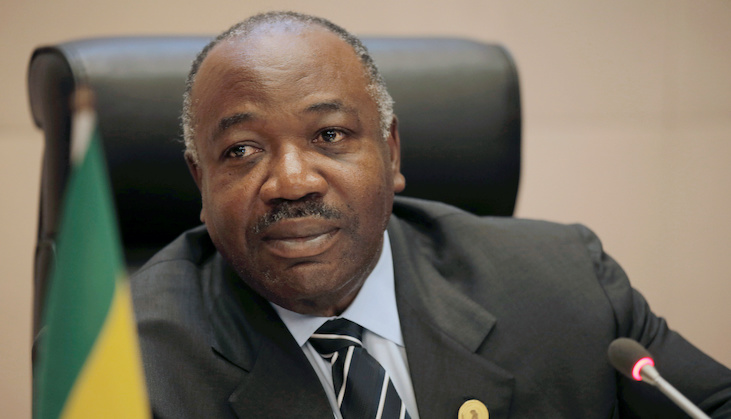Ali Bongo Ondimba, the President of Gabon, has officially declared his intentions to pursue a third term in office. He made this announcement during a rally broadcasted live on his Facebook page on Sunday.
The incumbent President assumed power following his father, Omar Bongo Ondimba, in 2009, thereby continuing the family’s dynastic rule that has spanned over 55 years. His re-election in 2016 was a tightly contested affair, with Ondimba securing the presidency by a mere margin of 5,500 votes over his rival, Jean Ping, leading to allegations of election rigging.
“I am officially announcing today that I am a candidate!” said President Ondimba to a crowd of supporters, emphasizing his dedication to the success and progress of Gabon.
The forthcoming presidential elections will be accompanied by ballots for the National Assembly and regional and local councils. However, a lack of consensus within the opposition on a single candidate has led to an array of about 15 presidential hopefuls.
“I am firmly convinced: we can replicate our most significant achievements. The matters that matter to you, to me, and to our country. By striving collectively to provide job opportunities, reduce the cost of living, and enhance the day-to-day lives of ourselves and our families,” Ondimba stated, underscoring his promises for his potential third term.
Despite suffering a stroke in 2018 and ensuing months of recovery that sparked doubts about his ability to govern, Ondimba’s announcement signals his determination to remain at the helm of one of Africa’s wealthiest nations per capita. Gabon, with its population of just 2.3 million, enjoys significant wealth due to its oil revenue.
Earlier this year, Gabon’s parliament approved a constitutional amendment to reduce the president’s term from seven to five years. This change, particularly the elimination of the two-round voting system, was heavily criticised by sections of the opposition, who accused it of being a tactic to “facilitate the re-election” of Ondimba.
Ali Bongo Ondimba Second Term Performance Criticism
A detailed economic report titled “105 Promises, 13 Achievements,” scrutinizes the effectiveness of President Ali Bongo’s second term at the helm of Gabon. Economists Mays Mouissi and Harold Leckat, the authors of the 196-page document, paint a less than flattering picture of the Bongo administration’s accomplishments.
Despite Gabon’s wealth in oil, gas, and mineral deposits, and a population of less than 2.5 million, unemployment figures have risen. Additionally, the report identifies a vast chasm between the promises made and actual infrastructure development under the current administration.
“Most of the infrastructure projects the President pledged have not materialized,” Mays Mouissi highlights. His list includes road projects, five hydroelectric dams, schools, a promised digital knowledge city, and 700 nurseries among other initiatives.
Mouissi further critiques the administration’s macro-economic performance: “The unemployment rate has escalated from 28% to 32%. Meanwhile, 35% of Gabonese citizens live below the poverty line, surviving on less than two dollars a day. Access to basic social services has disintegrated.”
The report does acknowledge some positive developments, such as the allocation of 30% of civil servant positions to women and the passing of bills to boost port activity. It also praises the preservation of territorial waters and the construction of commercial and ore ports in Owendo.
Yet, according to the economists, these achievements do not compensate for the wider failures. Mouissi firmly dismisses the health condition of President Bongo, who suffered a stroke in 2018, as an excuse for the underperformance.
“We mustn’t use the President’s stroke to justify this failure,” he asserts. “If he felt unable to govern post-stroke, he would have resigned; if he remained, it was because he felt able.”
The Covid-19 pandemic’s impact is also discussed in the report. However, Mouissi cites the progress of major projects in other African nations, like Côte d’Ivoire, as evidence that Gabon’s struggles point to “issues of governance, leadership, and stability in project management.”
The authors of the report hope to stimulate public awareness and engagement ahead of the presidential elections scheduled for August 26, where President Ali Bongo is expected to compete fiercely against his main rival, Jean Ping.
Image Credit: REUTERS/Tiksa Negeri





